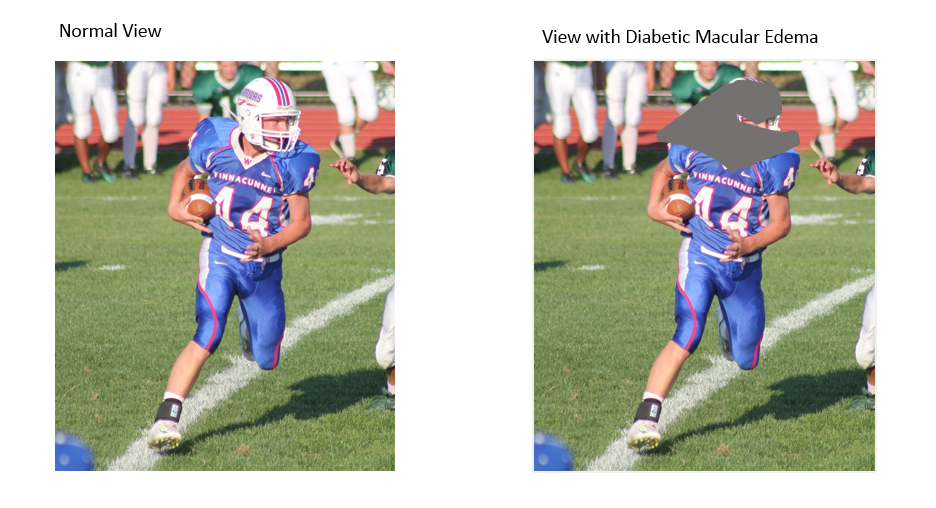By admin | Feb 03, 2017

Diabetic retinopathy is a retinal disease that affects the light sensitive layer of nerves in the back of the eye called the retina. These nerves are responsible for sending images or pictures to your brain. With diabetic retinopathy, blood vessels begin to weaken causing them to break. When this occurs blood and fluid can leak into the retina. This can lead to poor vision, and blurriness. Overtime if the condition worsens it can lead to more severe issues like blindness. The center of the retina is called the macula. When the leaky blood vessels affect the macula, we get swelling that we call macular edema. Since the macula is located in the center of the eye, when swelling occurs the part of your vision that is responsible for detailed views is disturbed.
Most people experience little to no symptoms early on until vision begins to become distorted. Usually, when vision distortion is experienced diabetic retinopathy has been present for some time. Keeping blood sugar levels low is extremely important when dealing with diabetic retinopathy since the condition can worsen with increased blood sugar levels causing more blood vessel damage. If you suffer from high blood pressure this can also worsen the condition. Regular yearly eye exams are crucial in monitoring your eye health and can help detect this disease before it is too late.
Treatment of diabetic retinopathy
Diabetic retinopathy is best treated when it is detected in its early stages. When vision loss occurs, the damage is sometimes irreversible. Since many people with this disease do not experience any symptoms early on it is very important to receive comprehensive dilated eye exams yearly.
Anti-VEGF injection: This drug is injected into the vitreous cavity of the eye. The injections block the protein VEGF that causes the leakage and prevents the growth of abnormal new blood vessels that break and leak fluid. There are several options for anti-VEGF injections which include Eyelea, Lucentis, and Avastin. These drugs are injected on a monthly basis and your retina specialist should come up with a treatment plan and assess which injection is right for you.
Focal/grid macular laser surgery: A laser will seal off blood vessels that are leaking blood and fluid. The laser reduces the leakage of blood vessels and the macular edema. Laser cannot be used in the center of the macula, since it would destroy this important part of the retina.
Corticosteroids: Corticosteroids can be injected or implanted in the eye. The implants slowly release corticosteroids into the eye that helps keep diabetic macular edema under control. Your retina specialist should monitor you for any possible side effects with these treatments.
At Retina Consultants of Boston, we use the latest state of the art technology to ensure our patients have the appropriate treatment options to target all of their specific needs. We are currently accepting new patients, please call and make an appointment with one of our Board-Certified Ophthalmologists today!
In the interest of maintaining further transparency and providing a wide breadth of information to our patients and providers, this blog will serve as an educational and informative resource on interesting happenings within Retina Consultants of Boston and in the greater field of Ophthalmology.
Here at Retina Consultants of Boston, Dr. John J. Weiter and Dr. Namrata Nandakumar are on the forefront of diagnostic techniques, treatment and micro-surgical techniques for macular degeneration, diabetic retinopathy, retinal detachments, macular holes, and a number of other issues affecting the vitreous and retina. Check back here frequently for news and updates on our practice and all things retina!